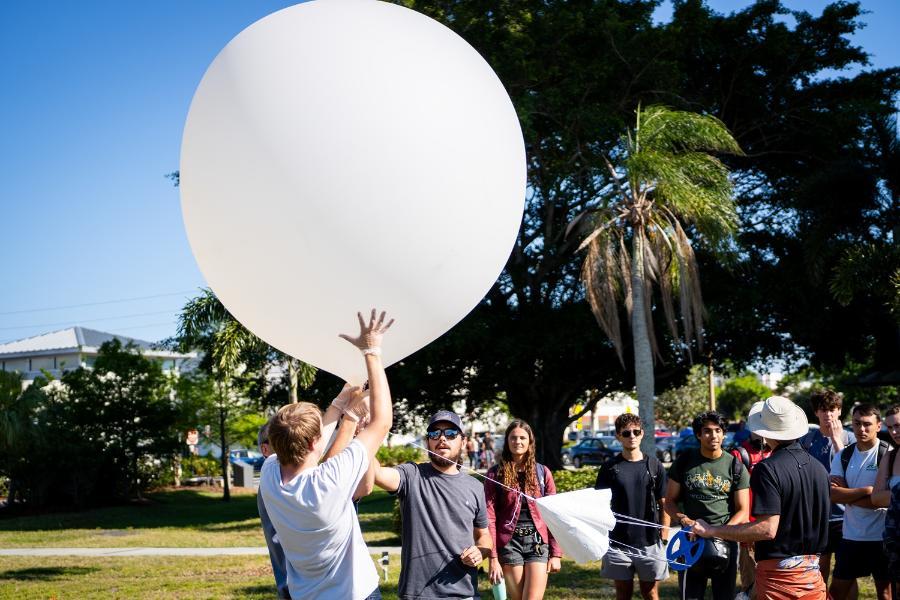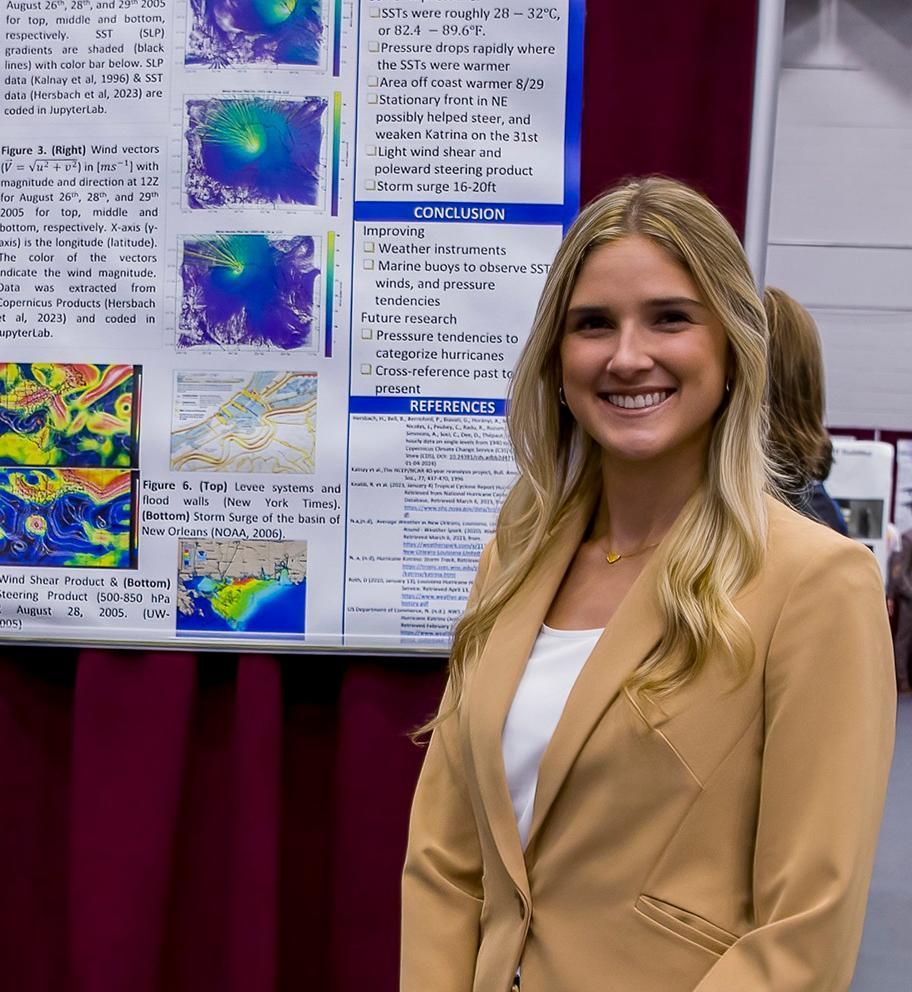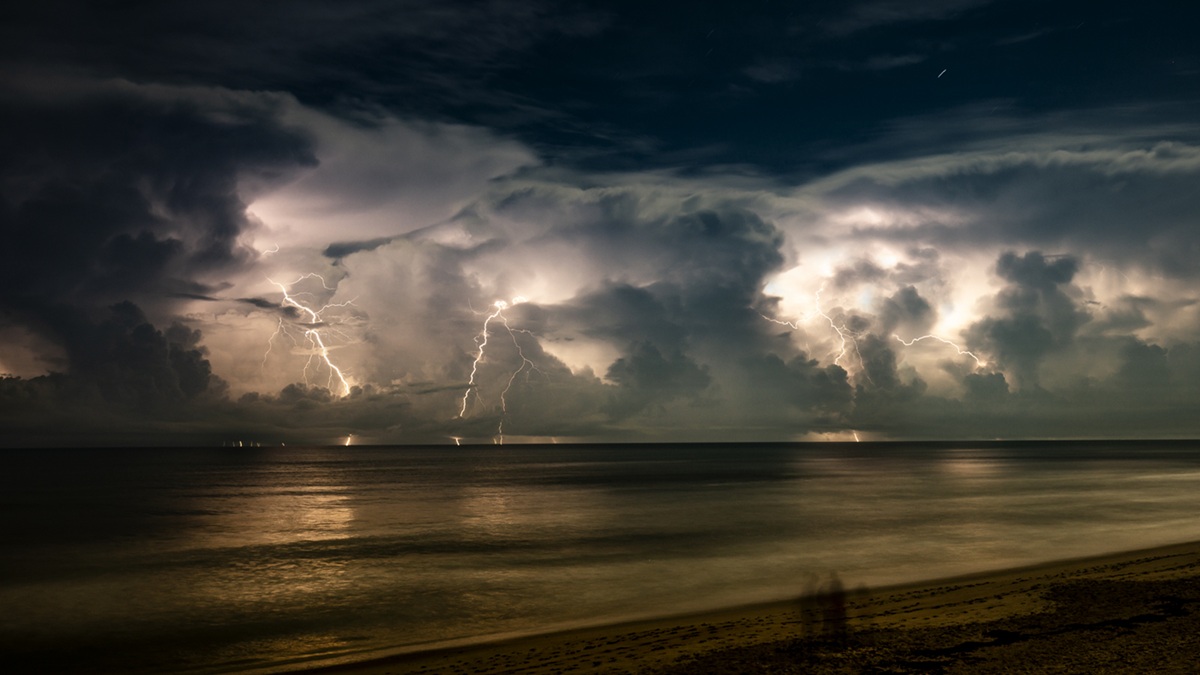Research opportunities abound through collaborations with nearby NASA-Kennedy Space Center, the USAF 45th Weather Squadron, NOAA’s National Weather Service, the Harbor Branch Oceanographic Institute and local agencies and corporations.
On campus, students benefit from state-of-the-art labs and equipment. Resources include a wind tunnel, wave tank, coastal processes lab and an environmental optics and remote sensing lab. Florida Tech’s aircraft fleet also supports flight-based research and training.
The synoptic meteorology laboratory features high-performance computers for acquiring and analyzing weather data, supporting the study of large-scale atmospheric systems and forecasting techniques.
Florida Tech is also home to the Wind and Hurricane Impacts Research Laboratory (WHIRL), which investigates the effects of hurricanes, tornadoes, thunderstorms and related hazards such as flooding and storm surge. WHIRL’s multidisciplinary team of engineers, scientists and business experts collaborates across sectors to address wind hazard mitigation needs throughout the Space Coast and beyond.

 Give to Florida Tech
Give to Florida Tech 



